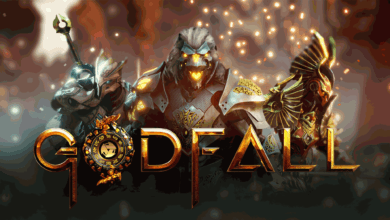Video Games
What is the Metaverse?

If you’ve been paying attention to the world of technology, gaming, or cryptocurrency, you may have heard of the Metaverse long before the end of 2021. But even if you haven’t delved into these areas, you’ve likely noticed a significant uptick. In conversation since Facebook outlined its big Metaverse blueprints.
What exactly is a metadata store? Well, it’s hard to describe it in a short snippet. Indeed, this is a future vision of a more immersive and inclusive internet, and virtual reality (VR) and augmented reality (AR) headsets could play a big role in making online experiences look and feel more realistic. , and possibly transforming some actions in the real world.
How the metadata will work and who will control it remains to be seen, but the term has recently been used as bait for a variety of future NFT-oriented technologies, games, and initiatives. Also, it may be years before we all vibe online as avatars. But now this is what you need to know.
What is Metaware?
While there may be conflicting views on how metadata works, this appears to be true: it is seen as another major evolution of the Internet, a shift from today’s text-based websites and closed ecosystems to shared, overlapping 3D spaces, where that users interact.
Fans believe that the metaverse is used for many different things, from socializing to events, gaming, shopping, and even work. The Metaverse will not be a single site or platform, but rather a series of online settlements with customizable avatars and resources that can be moved from one virtual location to another.
The second element can be based on NFT and blockchain technology. Immutable tokens are digital assets with scheduled scarcity, making them an ideal tool for representing ownership of virtual assets, such as metaverse items or virtual parcels of land. Popular NFTs like Bored Ape Yacht Club and Crypto Punks can be turned into 3D avatars that their owners can transfer to their Metaverse world, for example. These virtual assets can also be traded, customized, and even earned.
The metaverse as a concept is ahead of the current surge of interest; while the term itself first appeared in Neal Stephenson’s cult cyberpunk novel Snow Crash, Ernest Cline’s Ready, Player One, and in particular the film adaptation directed by Steven Spielberg, brought the concept to a wider audience.
What is so special?
Some of what you have read above may sound familiar. That’s right: Virtual world gaming has been around for a long time, especially Second Life, which launched. If you play Fortnite or Roblox, you’re probably already familiar with the idea of a shared server where users control avatars to play and socialize.
One of the biggest differences between these games and a potential blockchain-powered metadator is the idea of ownership of real-world assets. With Fortnite and Roblox, you pay for virtual currency that you can exchange for digital items, but these remain on the central servers of the game manufacturer. You cannot sell them for money on foreign markets or transfer them to other games. It’s a one-time operation and that’s it.
Have you ever wondered about XLM future with the hype set up around Cosmos Price Prediction?
Download the decryption app
For the best experience, download the top Cryptocurrency news and special features now.
In the proposed NFT-based metaverse NFT game, you can have things like avatars, land, digital clothing, and more, and move them between platforms via a crypto wallet. Interoperability is key here for crypto startups enabling the technology – it’s not just about locking Facebook, Google or other tech giants into a single platform.
Additionally, Metaverse backers believe it will unlock additional economic opportunities for users and developers through for-profit video games (such as Axie Infinity), creating content and items for others to purchase such as NFTs, and even designing games and locations. Users can explore and enjoy it for a fee. Cryptocurrency-based Metaverse can better democratize the Internet and deliver significant value to users, not just platform operators.





